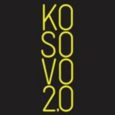In 2017, Prime Minister Ramush Haradinaj hit the headlines with his decision to raise his own salary, and those of other government officials, claiming that this decision would lead to a higher quality of work. He subsequently appears to have had a change of heart and asked deputies to lower his pay. But with that decision still pending, the government has unsurprisingly come under pressure to raise the wages of frontline public sector workers.
The start of 2019 has been marked by workers in the health and education sectors walking out on strike, with other civil servants also considering beginning their own strike action own pay. Education institutions have been paralysed since January 14, as teachers and university professors have refused to return to the classrooms, while doctors have also taken part in a series of walkouts for the past month, which are affecting the day-to-day functioning of hospitals.
As part of the negotiations, the government has offered to raise teachers’ wages — by 74 euros for high school teachers, 46 euros for elementary teachers and 54 euros for preschool teachers. But the Union of Science, Education and Culture (SBAShK) has said the increase is not enough and that the pay rise should apply to all school staff, including technical and administrative colleagues.
However, unlike most previous strikes, these actions have been met with significant criticism, with some analysts arguing that any increase in salaries should be accompanied by enhanced quality of services.
With the debate raging on, we want to sit down and discuss all the issues in our latest Small Talk. Why are teachers and doctors striking at this moment? Are the demands solely about wages, or will the unions raise other demands? Are their demands justified? Does the state have the capacity — or the will — to fulfill them?
Join us at 18:00 on Thursday, January 31 at K2.0’s space for an open, participative discussion, where we’ll tackle all these questions and more. We’ve invited a few people along to help get the conversation started:
- Representative from the Office of Prime Minister
- Rrahman Jasharaj — Head of the Union of Science, Education and Culture (confirmation pending)
- Blerim Syla — Head of the Federation of Health Union in Kosovo
- Saranda Ramaj — KOHA journalist
- Dukagjin Pupovci — executive director of Kosovo Education CenterK
*Translation in English will be provided.
This K2.0 Small Talk is funded by National Endowment for Democracy.

